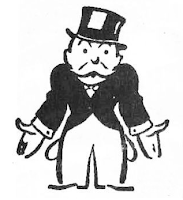Ideas and Execution
 Had a most excellent few days with Vera Valmore visiting my father in Florida. Did not play any poker this trip, opting instead to spend time running around with Vera and hanging out with Pop.
Had a most excellent few days with Vera Valmore visiting my father in Florida. Did not play any poker this trip, opting instead to spend time running around with Vera and hanging out with Pop. I did mostly unplug while we were gone, although I have since managed to catch some of the follow-up regarding last Thursday’s announcement that the Federated Sports + Gaming had declared Chapter 11 bankruptcy and what appear to be much weakened prospects for the Epic Poker League going forward.
As I was saying on Thursday when reflecting briefly about the news, for the EPL to struggle was not unexpected. I think most rational observers felt from the beginning that the league’s chances for success weren’t great. But even the most skeptical seemed to believe the league would at least make it through its initial season of events before talk of closing shop would arise.
I remember early last year when we first heard about the as-yet-unnamed league. I wrote something here titled “A League of Their Own” in which I kind of questioned the whole idea of trying to segregate out poker’s elite to compete exclusively against each other.
I also made a hardly unique comment in that post about the practicality of what the FS+G folks were then describing with regard to the big overlays and $1 million freeroll. “Am wondering a little about the money,” I said, “the securing of which will obviously prove crucial to the league’s survival.”
Yeah, I know. Obvious point is obvious.
The idea of a pro poker league still isn’t necessarily a bad one. Kim over at Infinite Edge has offered what seems to me a smart commentary on how the idea behind the EPL to try to create a professional poker league was in fact a good one -- even “noble” (as he says). But as Kim explains, in this case there existed from the start a disconnect between the theory and the execution.
Rather than create a sports-like league in which players took pride in competing against the best players in the game, the league ended up being all about trying to woo members of a select group into accepting what appeared an opportunity to profit financially (a +EV opportunity). Thus came the big overlays, the $1 million freeroll, and the big buy-ins, too, which would guarantee large prizes to those who succeeded -- all there because it was thought no one would play without such incentives to do so.
Kim suggests how a league might’ve been created with smaller cash prizes, say, with $100K freerolls (no buy-ins) in which the point wasn’t to make a big cash score but to pit the “best against the best... for undisputable honor and a high standing within the poker community.” That is, to play more for the glory, and not so much for the money.
That might not have worked either, of course. Money is, after all, a crucial element to poker -- the game is meaningless without it, some say -- and so it is hard to imagine creating a professional poker league in which money’s significance is somehow diminished (or made meaningless) while still remaining the same game.
So that might’ve struggled or failed, too. But as Kim suggests, it would’ve stayed true to the league’s idea.
Also, it wouldn’t have cost as much.
Labels: *high society, Epic Poker, Infinite Edge Kim














0 Comments:
Post a Comment
<< Home